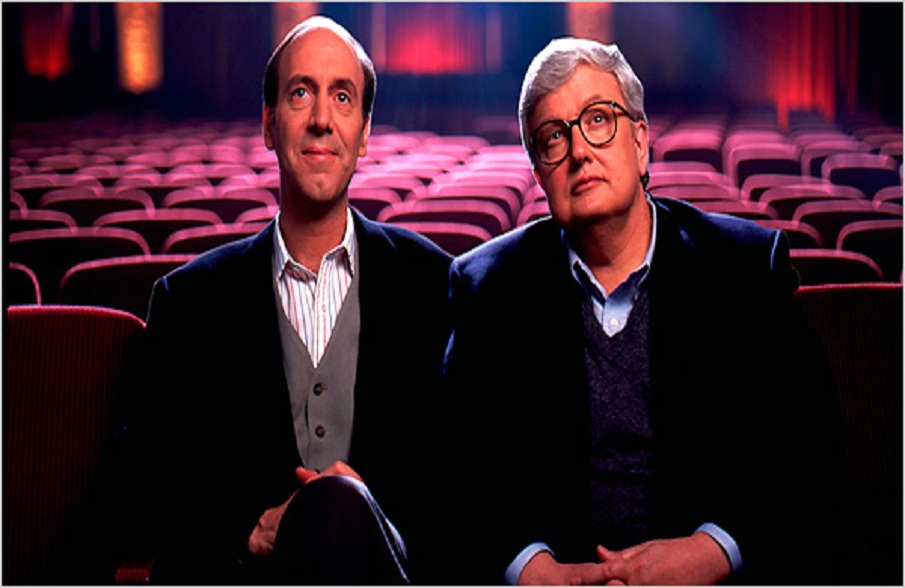(Normal viewers vs analytical viewers)
Films are primarily made to be watched, there is no question about that. But they can also be discussed, which means that, as well as normal viewers, spectators can also be film critics or analysts.
According to Augusto Sainati and Massimiliano Gaudiosi, common viewers watch films with a passive, absent-minded and naïve attitude. They are mostly interested in the story and they get immersed in the world of the film. Instead, the analysts have an active, technical and interpretative behaviour. They try to understand the relationships among the elements which constitute the film and the logic which organizes them in a coherent whole. They act as detectives: they examine the facts and then they provide an interpretation in a review or an academic article.
(Reviews vs articles)
But what is the difference between reviews and academic articles? And when writing about film, should we describe, analyse, interpret or evaluate?
Let’s have a look, first of all, at the second question, as explained by film studies expert David Bordwell. Description involves summarizing plots, describing scenes, characterizing performances or music and visual style. The descriptions can be more or less objective or subjective. Analysis is different, as it requires the explanation of how different parts go together to make up a whole. If you simply list all the shots of a scene in order, that is a description. But if you go on to show the functions that each part performs in relation to the others or some broader effect, you’re doing analysis. If you then go on to make claims about the general meaning of a film, you are providing an interpretation. And finally, if you assess the quality of a film, you are evaluating it.
As for the difference between reviews and academic articles, a review is a brief characterization of the film, aimed at a broad audience who hasn’t seen it. Reviews track current releases and so have a sort of news value. They’re a type of journalism. They tend to describe the film (the plot, without giving much away), they do very little analysis (there’s no space for it), a little more interpretation and a lot of evaluation. This, the opinion of the reviewer, is what we’re looking for when we read a review before watching a film.
In contrast, academic articles are longer than reviews and presupose that the viewers have seen the film. They help viewers to better understand the film they have seen. They can include a short evaluation, some description and a lot of analysis and interpretation. Instead of focusing on whether films are good or not, like reviews, they focus on why they are good or not.
Reviews and articles used to be written by film critics and scholars in newspapers and film magazines (and also shown on TV programmes). Now, the Internet is also a massive platform for this, with the so called cybercriticism, that is, thousands of amateurs and professionals writing about film.
(Film societies)
So far, we have covered individual film analysis, but films can also be analysed in groups, publicly. This can be done, among other venues, in schools and in film societies.
Film societies or film clubs are membership clubs that enable people to watch screenings of films outside the context of a normal, mainstream cinema. In Spain, Ireland and Italy they are called Cine Clubs. The first countries to set up these venues were France and the UK in the 1920s. Canada and Germany followed suit in the 1930s and 1940s. In countries such as Spain, which was culturally silenced for 40 years by Franco’s censorship, cineclubs were an example of social organisation from the roots, very active, wide spread and plural. They created room for debate and disseminated all types of cinema that the dictatorship denied.
These venues are forums for film discussion, which can take place as an introduction before the film or as a Q&A session at the end of the film, often with the filmmakers exchanging views with the audience. Some of the most famous film societies are Amos Vogel’s Cinema 16, Cinémathèque Française, and the Film Society of Lincoln Center in New York City.
Nowadays, public discussions on films can also be found outside film societies, for example in multiscreen cinemas and other cinemas that present lectures and Q&As with filmmakers. These events have become essential in promoting film literacy amongst adults outside the school context.
(Film literacy)
Finally what about film education at school?
Film can be taught at school to teach different subjects, such as history, language, social studies, maths, music, sports, drama, etc. But film can also be used to teach film, that is, film education or film literacy. In the UK, the British Film Institute has just completed an international project to find out how film is taught in Europe and what can be done to improve film education.
The project provides a definition of what film education is:
– the level of understanding of a film
– the ability to be conscious and curious in the choice of films,
- – the competence to critically watch a film and analyse its content, cinematography and technical aspects,
- – the ability to manipulate its language and technical resources in creative moving image production.
In other words, if (language) literacy is the ability to read and write, film literacy is the ability to understand a film critically and to be able to create moving images.
As Martin Scorsese says, in the era of image in which we live, this should not be a priviledge, but a right.
This project and the words that you are listening to are one more step towards this right.
Producing partner: University of Roehampton http://www.roehampton.ac.uk/home/
Voice Talents: Dylan Ayres, Sharon Fryer
Music: Bensound – Brazilsamba (Composed and performed by Bensound http://www.bensound.com)






































